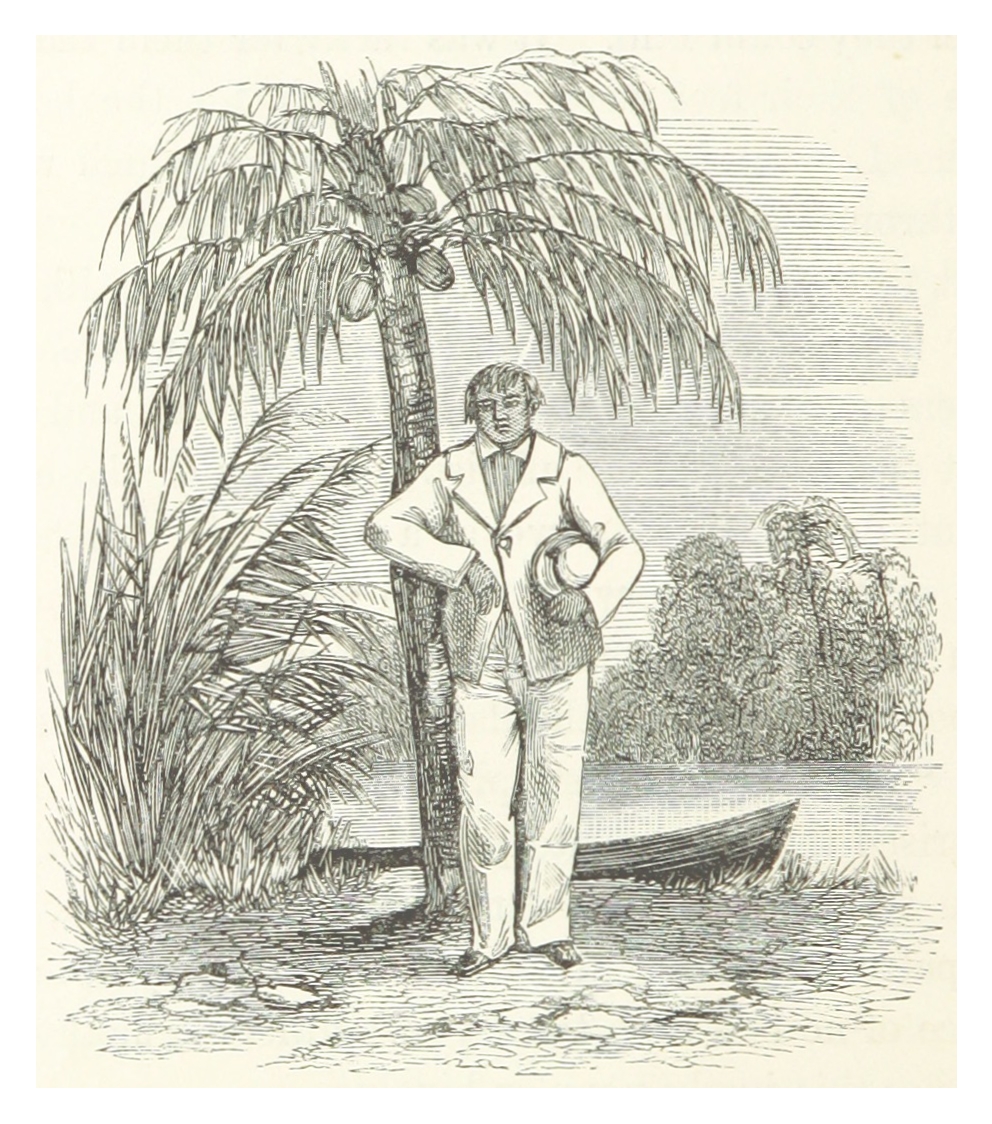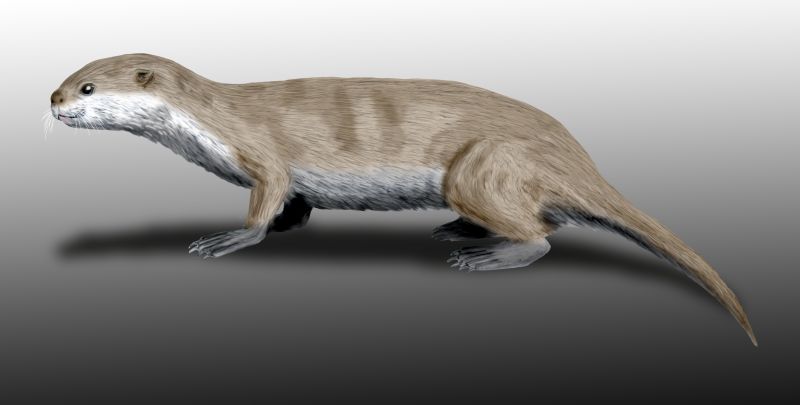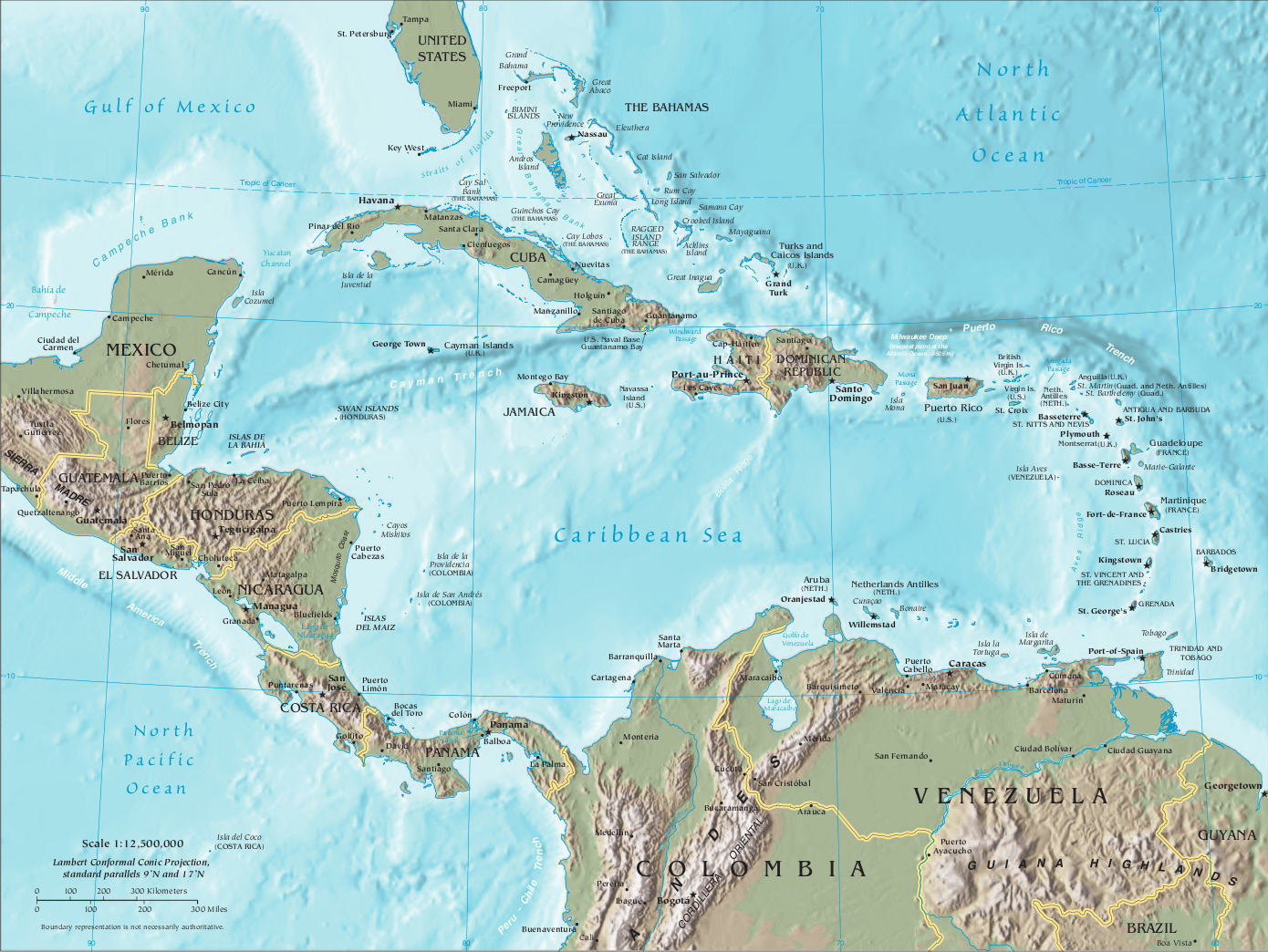|
Will (Indian)
Will (probably born in the 1650s or 1660s) was a Miskito pirate from the Misquito Coast, then part of the Spanish Main. He was left behind on the uninhabited Robinson Crusoe Island (today part of Insular Chile), surviving there alone for more than three years. It is possible that Will became the inspiration for Man Friday, the cannibal character in Daniel Defoe's novel ''Robinson Crusoe''. In English service As with other Miskitos, Will resisted the Spanish encroachment on their lands, and consequently allied with English pirates operating in the region. In 1680, he and several other Misquitos went on board an English vessel under the command of John Watling. The English gave names to the Indians, and he ended up with the name Will. At the end of that year, the English decided to refresh their supplies on the largest of the uninhabited Juan Fernández Islands. On 1 January 1681, while Will was hunting for goats in the island's interior, his comrades suddenly departed without ... [...More Info...] [...Related Items...] OR: [Wikipedia] [Google] [Baidu] |
Miskito People
The Miskitos are a native people in Central America. Their territory extends from Cape Camarón, Honduras, to Río Grande de Matagalpa, Nicaragua, along the Mosquito Coast, in the Western Caribbean Zone. Their population is estimated at 700,000 people as of 2021 according to the official Miskito Database. The Miskito people speak a native Miskito language, but many can also speak Miskito Coast Creole, Spanish, English, and German. Spanish is the language of education and government, but some family educate their children in English, German, or Miskito. Miskito Coast Creole, an English-based creole language, came about through frequent contact with the British for trading, as they predominated along this coast. Many are Christians. A 1987 peace agreement afforded them land rights over traditional lands. However, despite significant political struggles throughout their history, today the Miskito face human rights violations over land rights disputes, as recognized by the ... [...More Info...] [...Related Items...] OR: [Wikipedia] [Google] [Baidu] |
John Watling
John, or George, Watling (died 1681) was a 17th-century English buccaneer. It was said that he would never plunder on the Sabbath and refused to allow his crew to play cards on this holy day. John Watling is best known for making his headquarters on the island currently dubbed San Salvador and naming it Watling Island. It is believed to be the island ''Guanahani,'' as named by the indigenous Lucayan people, which Christopher Columbus first saw in 1492 and renamed San Salvador. This is disputed by some. In 1925, the Bahamas officially named the island San Salvador after several scholars had argued that its features best matched Columbus' description of the island he visited. Mutiny and taking charge In 1680–1681 John Watling sailed under Captain Bartholomew Sharp aboard the ''Most Holy Trinity.'' Certain members of the crew were unhappy with Sharp. Each buccaneer had amassed a fortune under Sharp's leadership, but many had gambled all of their money away. Sharp had not gambl ... [...More Info...] [...Related Items...] OR: [Wikipedia] [Google] [Baidu] |
Privateers
A privateer is a private person or ship that engages in maritime warfare under a commission of war. Since robbery under arms was a common aspect of seaborne trade, until the early 19th century all merchant ships carried arms. A sovereign or delegated authority issued commissions, also referred to as a letter of marque, during wartime. The commission empowered the holder to carry on all forms of hostility permissible at sea by the usages of war. This included attacking foreign vessels and taking them as prizes, and taking prize crews as prisoners for exchange. Captured ships were subject to condemnation and sale under prize (law), prize law, with the proceeds divided by percentage between the privateer's sponsors, shipowners, captains and crew. A percentage share usually went to the issuer of the commission (i.e. the sovereign). Privateering allowed sovereigns to raise revenue for war by mobilizing privately owned armed ships and sailors to supplement state power. For participants, ... [...More Info...] [...Related Items...] OR: [Wikipedia] [Google] [Baidu] |
Castaways
A castaway is a person cast adrift or ashore. Castaway or Cast Away may also refer to: Literature * "The Castaways" (short story), P.G. Wodehouse * ''Castaway'' (book), a 1984 memoir by Lucy Irvine *''The Castaway'', Hallie Erminie Rives's 1904 novel that was the subject of Bobbs-Merrill Co. v. Straus, a landmark US copyright case * "The Castaway" (poem), an 1799 poem/ballad by William Cowper Film and TV * ''The Castaways'' (1910 film), 1910 film *''Cast Away'', a 2000 film starring Tom Hanks * ''Castaway'' (film), a 1986 film starring Amanda Donohoe and Oliver Reed, adapted from the Lucy Irvine memoir *''Castaway 2000'', a BBC series *'' Castaway 2007'', a BBC series * ''Castaways'' (1978 TV series), a 1978 historical drama series featuring Annie Whittle * ''Castaway'' (TV series), a 2011 Australian television series * ''Castaways'' (TV series), an American reality television series produced by ABC * ''The Castaway'' (film), a 1931 Mickey Mouse animated short * ''The Casta ... [...More Info...] [...Related Items...] OR: [Wikipedia] [Google] [Baidu] |
17th-century Pirates
The 17th century lasted from January 1, 1601 ( MDCI), to December 31, 1700 ( MDCC). It falls into the early modern period of Europe and in that continent (whose impact on the world was increasing) was characterized by the Baroque cultural movement, the latter part of the Spanish Golden Age, the Dutch Golden Age, the French '' Grand Siècle'' dominated by Louis XIV, the Scientific Revolution, the world's first public company and megacorporation known as the Dutch East India Company, and according to some historians, the General Crisis. From the mid-17th century, European politics were increasingly dominated by the Kingdom of France of Louis XIV, where royal power was solidified domestically in the civil war of the Fronde. The semi-feudal territorial French nobility was weakened and subjugated to the power of an absolute monarchy through the reinvention of the Palace of Versailles from a hunting lodge to a gilded prison, in which a greatly expanded royal court could be more easi ... [...More Info...] [...Related Items...] OR: [Wikipedia] [Google] [Baidu] |
Alexander Selkirk
Alexander Selkirk (167613 December 1721) was a Scottish privateer and Royal Navy officer who spent four years and four months as a castaway (1704–1709) after being marooned by his captain, initially at his request, on an uninhabited island in the South Pacific Ocean. He survived that ordeal but died from tropical illness years later while serving as a Lieutenant aboard off West Africa. Selkirk was an unruly youth and joined buccaneering voyages to the South Pacific during the War of the Spanish Succession. One such expedition was on ''Cinque Ports'', captained by Thomas Stradling under the overall command of William Dampier. Stradling's ship stopped to resupply at the uninhabited Juan Fernández Islands, west of South America, and Selkirk judged correctly that the craft was unseaworthy and asked to be left there. Selkirk's suspicions were soon justified, as ''Cinque Ports'' foundered near Malpelo Island 400 km (250 mi) from the coast of what is now Colombi ... [...More Info...] [...Related Items...] OR: [Wikipedia] [Google] [Baidu] |
Thomas Roscoe
Thomas Roscoe ( Liverpool 23 June 1791 – 24 September 1871 London) was an English author and translator. Life The fifth son of William Roscoe, he was born in Toxteth Park, Liverpool in 1791, and educated by Dr. W. Shepherd and by Mr. Lloyd, a private tutor. Soon after his father's financial troubles in 1816, which led to bankruptcy, Roscoe began to write in local magazines and journals, and he continued to follow literature as a profession. He died at age 80, on 24 September 1871, at Acacia Road, St. John's Wood, London. Works Roscoe's major original works were: *''Gonzalo, the Traitor: a Tragedy'', 1820. *''The King of the Peak'' non. 1823, 3 vols. *''Owain Goch: a Tale of the Revolution'' non. 1827, 3 vols. *''The Tourist in Switzerland and Italy'', 1830; the first volume of the ''Landscape Annual'', followed for eight years by similar volumes on Italy, France, and Spain. *''Wanderings and Excursions in North Wales'', 1836. *''Wanderings in South Wales'', with ... [...More Info...] [...Related Items...] OR: [Wikipedia] [Google] [Baidu] |
Pinniped
Pinnipeds (pronounced ), commonly known as seals, are a widely range (biology), distributed and diverse clade of carnivorous, fin-footed, semiaquatic, mostly marine mammal, marine mammals. They comprise the extant taxon, extant family (biology), families Odobenidae (whose only living member is the walrus), Otariidae (the eared seals: sea lions and fur seals), and Phocidae (the earless seals, or true seals). There are 34 extant species of pinnipeds, and more than 50 extinct species have been described from fossils. While seals were historically thought to have descended from two ancestral lines, molecular phylogenetics, molecular evidence supports them as a monophyletic lineage (descended from one ancestral line). Pinnipeds belong to the order Carnivora; their closest living relatives are Musteloidea, musteloids (Mustelidae, weasels, Procyonidae, raccoons, skunks, and red pandas), having diverged about 50 million years ago. Seals range in size from the and Baikal sea ... [...More Info...] [...Related Items...] OR: [Wikipedia] [Google] [Baidu] |
A New Voyage Round The World
''A New Voyage Round The World'' is a 1697 autobiographical book by William Dampier, telling of his journeys around the world, the most celebrated in England being his explorations of Australia. Following his return to England, Dampier is believed to have written the account in between further, shorter expeditions he made in the following years. It was published in 1697 to success, followed by subsequent editions. One later edition contained an addendum: "A Supplement to the Voyage round the World, together with the Voyages to Campeachy and the Discourse on the Trade Winds". The book helped bring into public consciousness the notion of a southerly continent. The book was also a "major influence on two canonical works of English literature, Swift's Gulliver's Travels and Defoe's Robinson Crusoe". In addition, Charles Darwin quoted Dampier's observations in the book on the behaviour of turtle doves in the Galapagos Islands: "Dampier also, in the same year 684 says that a man in a m ... [...More Info...] [...Related Items...] OR: [Wikipedia] [Google] [Baidu] |
William Dampier
William Dampier (baptised 5 September 1651; died March 1715) was an English explorer, pirate, privateer, navigator, and naturalist who became the first Englishman to explore parts of what is today Australia, and the first person to circumnavigate the world three times. He has also been described as Australia's first natural historian, as well as one of the most important British explorers of the period between Francis Drake (16th century) and James Cook (18th century), he "bridged those two eras" with a mix of piratical derring-do of the former and scientific inquiry of the later. His expeditions were among the first to identify and name a number of plants, animals, foods, and cooking techniques for a European audience; being among the first English writers to use words such as avocado, barbecue, and chopsticks. In describing the preparation of avocados, he was the first European to describe the making of guacamole, named the breadfruit plant, and made frequent documentatio ... [...More Info...] [...Related Items...] OR: [Wikipedia] [Google] [Baidu] |
Juan Fernández Islands
The Juan Fernández Islands ( es, Archipiélago Juan Fernández) are a sparsely inhabited series of islands in the South Pacific Ocean reliant on tourism and fishing. Situated off the coast of Chile, they are composed of three main volcanic islands: Robinson Crusoe, Alejandro Selkirk and Santa Clara. The group is part of Insular Chile. The islands are primarily known for having been the home to the marooned sailor Alexander Selkirk for more than four years from 1704, which may have inspired Daniel Defoe's ''Robinson Crusoe''. Most of the archipelago's present-day inhabitants reside on Robinson Crusoe Island, and mainly in the capital, San Juan Bautista, located at Cumberland Bay on the island's north coast.The islands' area and population data retrieved from the 2012 census. The group of islands is part of Chile's Valparaíso Region (which also includes Easter Island) and, along with the Desventuradas Islands, forms one of the nine communes of Valparaíso Province. Th ... [...More Info...] [...Related Items...] OR: [Wikipedia] [Google] [Baidu] |
Piracy In The Caribbean
]The era of piracy in the Caribbean began in the 1500s and phased out in the 1830s after the navies of the nations of Western Europe and North America with colonies in the Caribbean began combating pirates. The period during which pirates were most successful was from the 1660s to 1730s. Piracy flourished in the Caribbean because of the existence of pirate seaports such as Port Royal in Jamaica,Campo-Flores/ Arian, "Yar, Mate! Swashbuckler Tours!," Newsweek 180, no. 6 (2002): 58. Tortuga in Haiti, and Nassau in the Bahamas.Smith, Simon. "Piracy in early British America." History Today 46, no. 5 (May 1996): 29. Piracy in the Caribbean was part of a larger historical phenomenon of piracy, as it existed close to major trade and exploration routes in almost all the five oceans. Causes Pirates were often former sailors experienced in naval warfare. In the 16th century, pirate captains recruited seamen to loot European merchant ships, especially the Spanish treasure fleets sail ... [...More Info...] [...Related Items...] OR: [Wikipedia] [Google] [Baidu] |








